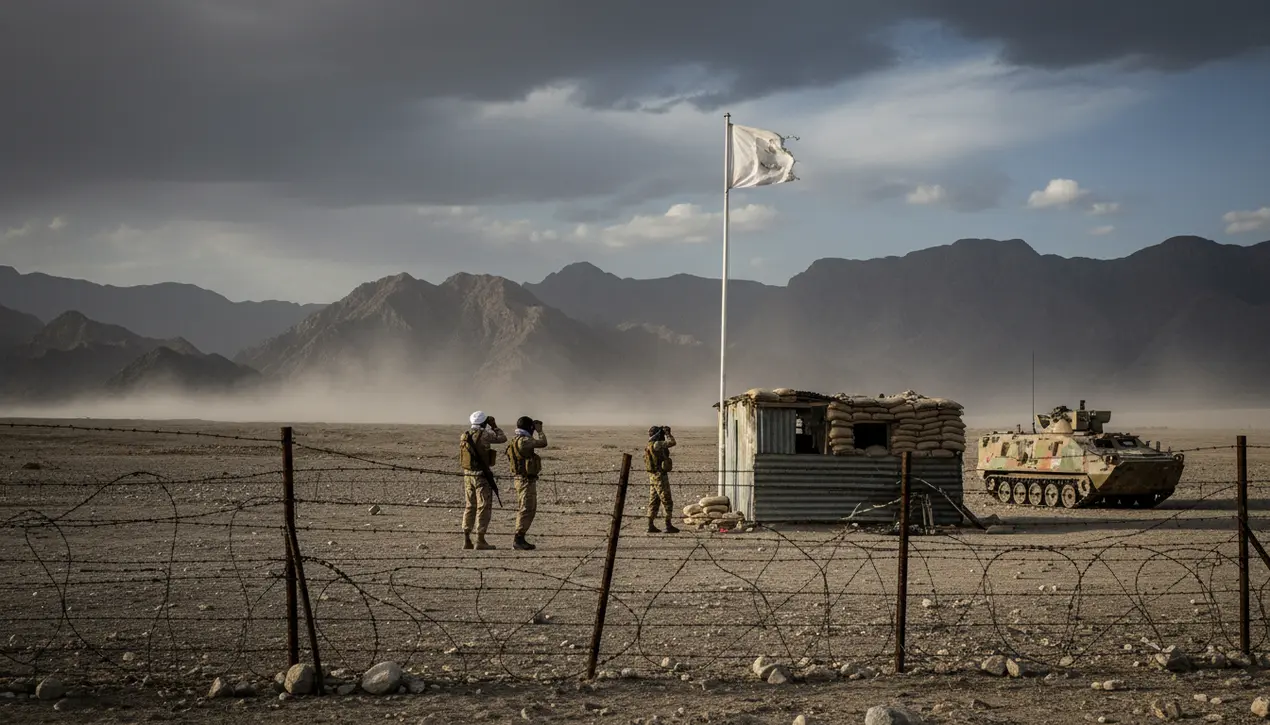
Politicsconflict & defenseTerrorism and Counterterrorism
India-Pakistan Tensions Rise Amid Terror Attacks and Afghan Proxy War Claims
OL
Oliver Scott
4 hours ago7 min read
The geopolitical tinderbox of South Asia is once again smoldering, with a fresh wave of suspected terrorist attacks in both Pakistan and India igniting a furious, high-stakes exchange of accusations that points directly toward a volatile, tripartite confrontation involving Afghanistan. This latest escalation is not an isolated incident but the predictable next chapter in a long-running regional drama where the lines between internal militancy and external statecraft have been deliberately blurred.The core of the current crisis hinges on the incendiary claim—leveled with increasing volume from New Delhi and Islamabad—that each nation is leveraging Afghan territory as a staging ground for proxy warfare. For India, the narrative centers on Pakistan’s historical patronage of groups like Lashkar-e-Taiba and Jaish-e-Mohammed, which they allege now operate with renewed impunity from sanctuaries along the Afghanistan-Pakistan border, a charge Pakistan vehemently denies while simultaneously pointing the finger back.Islamabad, in turn, accuses Indian intelligence agencies of exploiting the political vacuum and instability following the Taliban’s return to power in Kabul to foment unrest within Pakistan’s restive Balochistan and Khyber Pakhtunkhwa provinces, a scenario that, if proven, would represent a significant and dangerous escalation in covert operations. This mutual recrimination unfolds against a backdrop of recent, violent precedent: the deadly aerial clashes between Indian and Pakistani fighter jets in May of this year, which brought the two nuclear-armed neighbors perilously close to a broader conflict, and the more recent, and telling, skirmishes in October between Pakistani military forces and the very Afghan Taliban they once nurtured.These border firefights are a stark indicator that the relationship between Islamabad and the Kabul regime is far from the stable, pliable partnership Pakistan had anticipated, introducing a third, unpredictable actor into an already unstable equation. Analysts at firms like the Eurasia Group and Stratfor are cautiously modeling scenarios, with the baseline prediction being that outright war is still a low-probability, high-impact event.The primary restraining factors remain the immense economic costs for both nations, neither of which can afford a prolonged military mobilization, and the intense, behind-the-scenes diplomatic pressure from global powers, including the United States and China, who have significant strategic and economic interests in maintaining a semblance of regional stability. However, the risk calculus is dangerously fluid.A single, high-casualty terrorist attack on a major urban center, credibly traced across the border, could shatter this fragile restraint in an instant. The international community’s leverage is also diminished; with the U.S. withdrawal from Afghanistan, its ability to mediate or apply direct pressure has waned, leaving a diplomatic vacuum that Russia and China are only partially equipped to fill.The most alarming risk scenario, often discussed in security circles but rarely in public, is the potential for a limited, conventional conflict to spiral into a nuclear crisis. Both India and Pakistan possess tactical nuclear weapons designed for use on the battlefield, a doctrine that lowers the threshold for their deployment in a severe conventional defeat.A miscalculation, an errant artillery shell, or an intelligence failure could trigger a sequence of escalations that would be difficult to contain, turning South Asia into the globe’s most active and dangerous flashpoint. While the immediate hope rests on channels of backchannel communication and military hotlines remaining open, the underlying structural issues—the dispute over Kashmir, the entrenched distrust, and the new great game playing out in Afghanistan—ensure that these tensions are not a temporary spike but a permanent and perilous feature of the regional landscape.
#India
#Pakistan
#Afghanistan
#terrorism
#proxy war
#diplomacy
#featured
Stay Informed. Act Smarter.
Get weekly highlights, major headlines, and expert insights — then put your knowledge to work in our live prediction markets.
Comments
Loading comments...
© 2025 Outpoll Service LTD. All rights reserved.